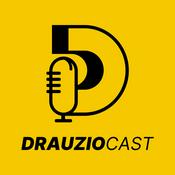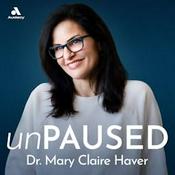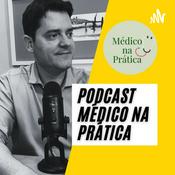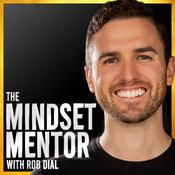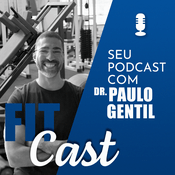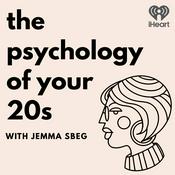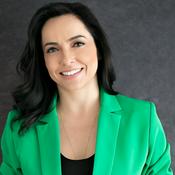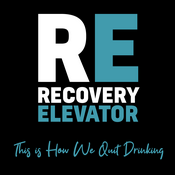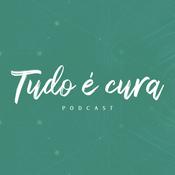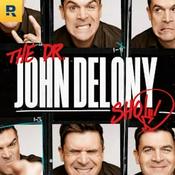30 episódios
- dnan H. Siddiqui is a dual-trained cerebrovascular and endovascular neurosurgeon, clinician-scientist, and technology leader working at the intersection of surgery, stroke care, and innovation. He is Professor and Vice Chair of Neurosurgery at the University at Buffalo, leads one of the busiest comprehensive stroke services in the United States, and directs large NIH-funded research programs focused on aneurysms, stroke, imaging, and hemodynamics. He has led major international clinical trials, and plays a central role in shaping training standards, device development, and evidence-based practice in neuroendovascular surgery through national and regulatory bodies. He is also CEO of the Jacobs Institute, where he works to translate surgical ideas into real-world technologies that reach patients.This conversation goes beyond technique. It examines judgment, training, failure, and the systems that produce true surgical excellence.In this episode, we discuss:00:45 – Why Dr. Adnan Siddiqui Chose Neurosurgery02:00 – Personal Loss and the “Dark Ages” of Neurosurgery03:15 – What Cerebrovascular Neurosurgery Overestimates Today04:40 – How to Stay Curious Without Losing Focus05:55 – When Robotic Microsurgery Became Inevitable06:50 – First Experiences With Surgical Robotics (Da Vinci & Beyond)08:45 – What Robots Do Better Than Human Hands in Microsurgery09:50 – Patient Selection for Robotic Intracranial Surgery10:45 – Why Adult Moyamoya Was the Right First Robotic Case12:05 – Indirect vs Direct Bypass in Adult Moyamoya Disease13:00 – Training Surgical Judgment When Technology Removes Friction14:20 – Why Some Neurosurgery Programs Create Leaders, Not Technicians15:35 – How the Jacobs Institute Built Real Interdisciplinary Innovation17:50 – Designing Surgical Environments That Improve Collaboration18:30 – Does Innovation Create a Two-Tier System in Medicine?20:15 – Why Perfection Still Matters in Neurosurgery21:00 – Early Career Mistakes and Learning Through Failure
- Fourth-year neurosurgery resident Dr. Subhashree Hari (P.D. Hinduja Hospital, Mumbai) joins Neurosurgery Tales to talk about what residency really looks like inside one of India’s busiest centers: high-volume clinics, learning under national leaders, the first mistake you never forget, and why communication can matter as much as the knife. Subtle cultural contrasts emerge naturally as we discuss training realities, resources, and mindset.
In this episode
The long path into Indian neurosurgery residency
Mentorship under top surgeons: inspiration vs. expectation
80–100 patient clinics: speed, stamina, and what actually sticks
The hardest non-surgical skill: clear, right-sized communication
The “first mistake” and how to prioritize under pressure
Case presentations and turning data into a story that lands
What her program does well, and how residents fill the gaps
Build up or break down first? A realistic view of resilience
Failure, “mediocrity,” and keeping the patient first
The 10-year vision: subspecialty, family, access, and teaching
Guest
Dr. Subhashree Hari • 4th-Year Neurosurgery Resident
P.D. Hinduja National Hospital & MRC, Mumbai, India
Chapters
00:00 Intro
01:00 When residency first felt real
04:20 Training under India’s leading neurosurgeons
06:00 High-volume clinics: sharper or just tired?
08:00 The hardest non-surgical skill: communication
14:15 The first mistake you never forget
20:25 How to turn medical data into a compelling narrative
24:45 What Indian programs do well (and where residents self-correct)
29:30 Build up vs. break down
33:45 Failure, mediocrity, and keeping outcomes first
39:30 A 10-year vision: subspecialty, family, access, teaching
45:15 Closing
About the show
Neurosurgery Tales shares modern, honest conversations with neurosurgeons and residents worldwide.
Contact / Collabs
Press, academic, and sponsorship: [email protected] - About Dr. Fernandez-MirandaProfessor of Neurosurgery at Stanford University; Surgical Director, Brain Tumor, Skull Base, and Pituitary Centers; internationally recognized for endoscopic skull base surgery, pituitary and cavernous sinus surgery, and white-matter–respecting approaches.In this episode, Professor Juan C. Fernandez-Miranda, MD (Stanford Neurosurgery) unpacks the decision to leave Spain for Albert Rhoton’s lab, what “complete resection” means when function is at risk, why restraint can be braver than reach, and the reconstruction choices that truly reduce CSF leaks. We also dig into training realities: endoscopic endonasal technique, cavernous sinus work, simulation that includes stress and chaos, and how to prepare teams for the complications that matter.Topics:• Spain → Rhoton: the leap that changed his career• The line he refuses to cross, even when he could “get it done”• Functional risk and defining “complete resection”• CSF-leak reduction: grafts, flaps, lumbar drains, and when to go free flap• Overused approaches in 2025 and where they still belong• Simulation that’s actually useful: bleeding, pressure, and team choreography• Habits outside medicine that sharpen intraoperative judgment• What to audit when technical perfection doesn’t help the patient• Training the next generation without shortcuts.Chapters00:00 Intro00:30 Spain → Rhoton: strategy vs leap of faith05:10 The surgical line he won’t cross07:20 What “complete resection” means when function is on the line10:50 Reconstruction to reduce CSF leaks (high-flow vs low-flow; flap strategy)15:05 Overused approaches and narrow indications (endonasal, transorbital)17:50 Simulation and realistic visualization (VR + cadaveric, carotid-injury drills)23:10 Concentration, meditation, and pre-op mental rehearsal26:15 When technical success ≠ patient benefit: indication, timing, expectations28:05 Teaching: wide base before tall tower; what he hopes fellows surpass him in29:35 What changed him most across a career — and what stayed the same
PODCAST INFO: YouTube:
https://www.youtube.com/@NeurosurgeryTalesPodcastSOCIAL: - TikTok: @neurosurgery.tale- Instagram: https://www.instagram.com/neurosurgery_tales/- Patreon: https://patreon.com/AurelianaToma - Dr. Daniele Bongetta is Head of Neurosurgery at Fatebenefratelli in Milan, a researcher and educator. Trained at the University of Pavia, he has performed thousands of neurosurgical procedures with expertise spanning brain tumors, spinal and vascular surgery, and traumatic injuries. He co-founded the Neurosurgical Basics course to give residents essential skills often overlooked in traditional training, and he has published extensively on topics ranging from fluorescence-guided tumor surgery to impostor syndrome in young surgeons. Dr. Bongetta is also the Co-Director of the first-ever NeuroOlympics, an international event debuting in Rome that blends surgical training, competition, and the spirit of sport to reimagine how neurosurgeons learn and connect. In this episode:• Leadership as burden vs. opportunity• Why he co-founded Neurosurgical Basics to fill gaps in resident training• Impostor syndrome in neurosurgery and the mentors who change everything• Fluorescence-guided tumor surgery and low-cost innovation in the OR• Athlete or artist? The mindset surgeons carry into operating room• Designing the “perfect” operating room of the future• Mistake on the Lake: why we must talk openly about surgical complications• The defining challenge for the next generation of neurosurgeons• The first NeuroOlympics in Rome — mixing skill, sport, and community• Choosing neurosurgery again
- Who owns your brain?Brain tech is here.Headbands track your focus. Stick-on “e-tattoos” read stress in real time. Neuralink implants are already in people.But the law is only now catching up.Chile has written neurorights into its Constitution. Colorado and California have declared brain-wave data “sensitive.” The EU bans emotion recognition in workplaces and schools.Still—outside the clinic, your brain data is often treated like shopping history, not sacred self. And that raises a bigger, more urgent question: If your thoughts can be recorded, who owns the master? You… or the system?In this episode of Deeply Unqualified, I explore:• The rise of consumer neurotech—headbands, tattoos, and headphones that read the mind• Why brain scans aren’t as anonymous as you think• How laws in Chile, the U.S., and Europe are drawing the first battle lines• What “neurorights” really mean for the future of privacy and identityAnd maybe the new rule we need is simple: My brain. My rules.PODCAST INFO: YouTube: https://www.youtube.com/@NeurosurgeryTalesPodcastSOCIAL: - TikTok: @neurosurgery.tale- Instagram: https://www.instagram.com/neurosurgery_tales/- Patreon: https://patreon.com/AurelianaToma
Mais podcasts de Saúde e fitness
Podcasts em tendência em Saúde e fitness
Sobre Neurosurgery Tales
Deep conversations with neurosurgeons around the world.
Each episode features world-renowned experts sharing groundbreaking insights, personal journeys, and the latest advancements in brain and spine care. Stay ahead in the field with cutting-edge minimally invasive techniques, neurosurgical innovations, and the human side of medicine. Discover the stories shaping the future of neurosurgery—one conversation at a time.
Site de podcastOuça Neurosurgery Tales, Psicologia na Prática e muitos outros podcasts de todo o mundo com o aplicativo o radio.net
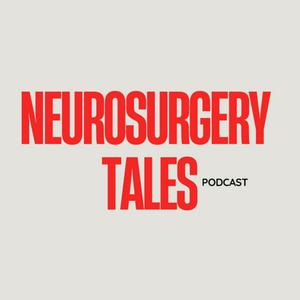
Obtenha o aplicativo gratuito radio.net
- Guardar rádios e podcasts favoritos
- Transmissão via Wi-Fi ou Bluetooth
- Carplay & Android Audo compatìvel
- E ainda mais funções
Obtenha o aplicativo gratuito radio.net
- Guardar rádios e podcasts favoritos
- Transmissão via Wi-Fi ou Bluetooth
- Carplay & Android Audo compatìvel
- E ainda mais funções


Neurosurgery Tales
Leia o código,
baixe o aplicativo,
ouça.
baixe o aplicativo,
ouça.










